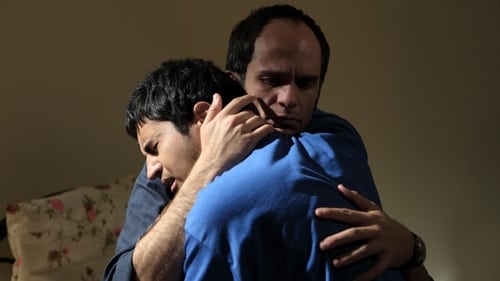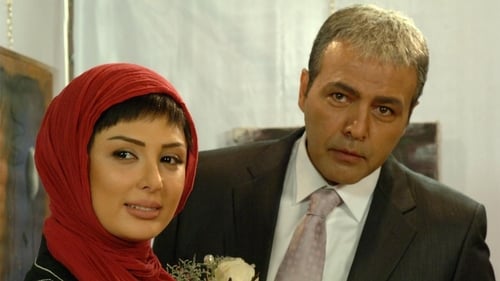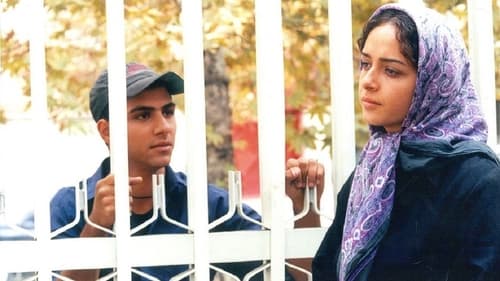Ahoo Kheradmand
出生 : 1950-01-01, Tehran, Iran
略歴
Ahoo Kheradmand is an actress who was born in 1950 in Tehran, Iran. She started her career in television and starred in the “Adam and Eve” series directed by Masoud Asadallahi in 1971. She has been Candidate for Best Actress for “Ma Hame Khoobim” by Bijan Mirbagheri and “Beautiful City” directed by Asghar Farhadi from Fajr Film Festival. Her most notable activities are “Eternal Children” by Pouran Derakhshandeh, “The Mirror Candlestick” by Bahram Bahramian, “Porteghal Khooni” by Sirous Alvand, “Gheseye Pariya” Fereydoun Jeirani and “There's Always a Woman in Between” directed by Kamal Tabrizi.

When an attempted breakout of a prisoner ends in mass bloodshed, a power struggle erupts between the lawmen and a group of civilians in a rural province. As hostilities between the two sides slowly escalate, the animosity felt by the rebel leader towards his enemies slowly grows. Violence only begets more violence as a brutal attack is met with an act of revenge. A Bloody historical epic from Jamshid Heydari.

Fakhri
An old couple decide to bring home their war veteran son from the hospital. Reza (their son) is angry to be home but something comes up to surprise them all.

The mother
Arash is an Iranian academic who lives in the West. He returns to Iran to teach in Shiraz, a city far from Tehran where his mother lives. Drawn into a series of domestic and financial dramas, he faces a country that is now alien to him. Following the death of his father and the discovery of what his “respectable family” has become, he is forced to make choices.

NA
Amir is the youngest child of Izadi Bozorg family who was sent to America by his father because of the better opportunities, but because of some issues his communications with his family is cut and Mansour. his older brother. goes to America to bring him back and…

Terme's Mother
An engineer starts to have feelings for a girl named Terme which come to his office for decorating till a young photographer come to Terme's life.

Nardaneh's mother
Based on an ancient story Sang-e Sabor it's the story of a girl Nardaneh who one day hears a voice telling her that soon she will marry with a dead man. One day she enters a castle and in one of it's room finds a dead body with a book beside it. She begins to read the book and follows the instructions step by step.

In a farm near Tehran: After Tavoos' wife passes away, although he knows that her death wasn't caused by a natural reason and has doubts that she might have been killed, he decides to fight his environment and its obstacles to have an independent life. There are some people in his life who have their own thoughts and try to influence him and his future...

Mother
Jamshid, the son of Abbas Sakhai, has been living abroad for a number of years. He sends a message for his family who then decide to make a film depicting their lives and send it to Jamshid. Omid, the younger son of the family, rents a video camera and records images of members of the family as they talk directly into the camera.

Pooneh Golkar who is an actor of minor roles, wants to be a star. Her father is a theater actor of the old times who is paralyzed resting at home. She provides for a short but influential role playing by her father. When the old man appears at the shooting location, he discovers a bitter truth that his young daughter is ready to do anything to be a famous star. Finding about this and also encountering the woman who has rejected him years ago in dream of playing a leading role, he looses his self-confidence to act in front of the camera and this causes him to be fired.

Abolqasem's Wife
Akbar, 18, has been held in a rehabilitation centre for committing murder at the age of sixteen. Now, Akbar is transferred to prison to await the day of his execution. A’la, a friend of Akbar, tries desperately to gain the consent of Akbar’s plaintiff so as to stop the execution.

Fereshteh loses her home and her two sons after her husband's accidental death when Hadj Safdar, her stubborn and powerful father-in-law, forces her to return to her parents. She is faced with the loss of her visitation rights when Hadj plans to send his grandchildren to live in a remote town. With the help of her circle of women friends she tries to take them beyond his reach, but in a patriarchal society it is hard to find a safe haven.

A man decides to sell the old family house to move into a modern apartment in the suburbs, and at the same time decides to send his father to a nursing home.

At the end of the reign, the country, the north, and the south are under strain to make foreign provisions for the Tremain.

Daadshah is a 1983 Iranian Persian-language film depicting the life and experiences of Baloch rebel Dad Shah in the Balochistan insurgency.

Directed by Jamshid Heydari.

During the 1979 revolution, a group of Muslim militants try to evacuate their arsenal in the north of Iran distributing them between the people. There is a woman in the group whose husband is in prison and snitches the arsenal's location. Her brother flees from prison and joins the group too. Security officers are informed and send two of their forces as the escapees into the group in order to pursue the group members and arrest them all. The two officers succeed to perish all the members of the group except the woman's brother.

A young playwright and director wants to write and perform a historical drama about faith in the Ashkani period of Iran. There is an incongruity between the man's personal life, and his quest to pursue and present history. The woman who lives with him believes he should not neglect their relationship when embarking on such a quest. The people who work with the playwright believe the play ought to be made popular to satisfy the public. Finally, this matter makes the playwright perform the play all by himself.








